In the first of a flurry of Reframing workshops this term, Kaye and I were invited by Catherine Flick to work with 3rd year students from the Faculty of Technology as part of their Research Methods module.
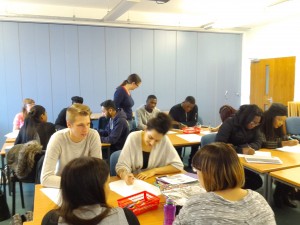
Reframing involves investigating a topic in stages, using concentric frames on a large sheet of paper labelled with the headings What, Who, When, Where and Why. Students used this method to develop ideas for their final year projects, to provide direction for research and to make new connections.
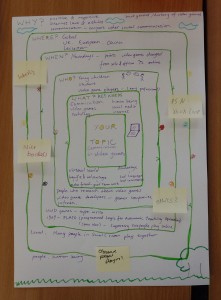
Exploring a variety of topics, from Facial Recognition Software to Communication in Video Games, students worked individually on an A3 sheet pre-printed with the frame outlines. Working out from the centre, students gradually filled each frame in turn, using a mixture of written and visual content to investigate their subject. Prompt questions were used to encourage reflection on chosen research topics, and discussion among peers was a key part of the workshop.
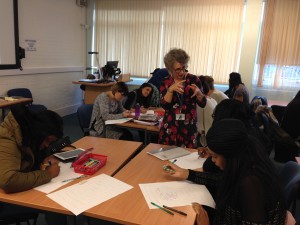
Kaye also provided input on searching for information using our Library Search system, showing how key words identified through the Reframing process could be used to develop research. Some students also used mobile devices to locate relevant information during the workshop. In this way, Information Literacy was woven into the exploratory and reflective Reframing activities.
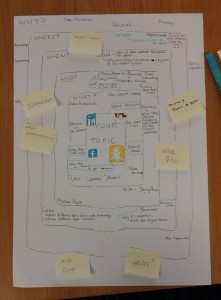
22 10 15
The final part of the session required students to use post-it notes to add comments and suggestions to others’ frames. Students particularly valued this and engaged well with the peer learning aspect of the workshop: ‘Ideas from other students helped!’
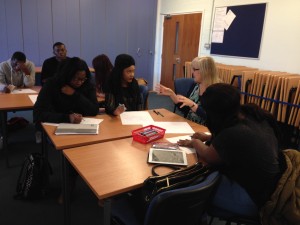
It was interesting to see how a technique which we had largely used within Art & Design was received by students involved in a completely different subject discipline. We were pleased to discover that these students from a non-A&D background engaged enthusiastically with the Reframing technique. They also appreciated the informal setting created by background music and group discussions around small tables: ‘Very enjoyable class. Relaxed atmosphere. Good input that helped me to look at my topic from another perspective.’
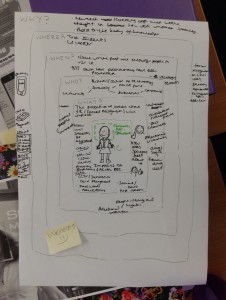
Student feedback was overwhelmingly positive, with comments such as: ‘Helped me expand on ideas and provided a backbone for my topic.’ and ‘Helpful, definitely allowed me to think about my project differently.’
On this basis, we are hoping that Reframing is embedded into the curriculum for this Research Module next year: thanks Catherine, for the opportunity to work with your students!
More workshop posts to follow…
Julia
For more on the Reframing technique, see:
http://lt2020.our.dmu.ac.uk/julia-reeve-visual-learning/
http://www.intellectbooks.co.uk/journals/view-Article,id=19535/